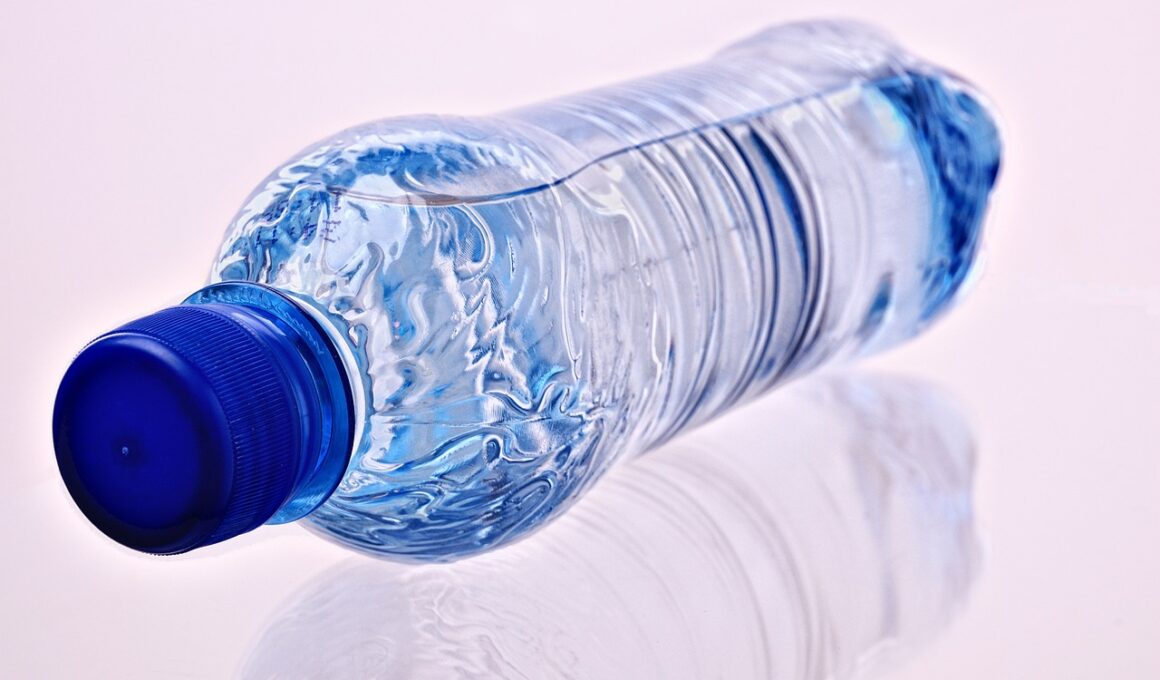Is It True That Drinking Too Much Water Makes You Gain Weight Immediately?
When engaging in physical activity, many individuals wonder about hydration and its effects on body weight. One common myth is the idea that drinking excessive water right after a workout leads to immediate weight gain. In reality, this notion stems from the misunderstanding between water retention and actual body fat increase. Water weight is temporary and influenced by various factors, including sweat loss during exercise and diet. To fully understand this phenomenon, it’s vital to consider that upon rehydration after a workout, one may experience a slight increase in weight due to the fluid intake. This is not fat gain, rather it reflects hydration levels. Furthermore, adequate hydration helps support metabolic functions, including fat oxidation. Thus, proper water consumption post-exercise facilitates recovery, rather than hinders weight management. The key is to find a balance that satisfies your body’s needs while avoiding excessive consumption, which may lead to discomfort. Listening to your body’s thirst signals can guide you in maintaining optimal hydration without falling prey to misleading weight gain myths after intense workouts.
Another important aspect of hydration post-workout involves understanding how our body manages water. During exercise, particularly intense sessions, our bodies lose significant amounts of water through sweat. This loss can cause dehydration, leading to fatigue, cramps, and decreased performance. Therefore, replenishing fluids becomes crucial for recovery. It’s essential to recognize that while we need to drink water, overhydration can also pose risks, like hyponatremia, where sodium levels in the blood drop too low. This condition can produce symptoms such as headache, confusion, and even seizures. However, these scenarios are more common among individuals consuming excessive amounts of fluids in a very short time. To stay healthy, individuals should aim to gradually replace lost fluids through water, electrolyte beverages, or even consuming hydrating foods. Different workouts require different hydration strategies. For short, moderate workouts, plain water suffices, but longer sessions might need electrolytes to maintain balance. Understanding individual water needs according to workout intensity and duration is vital for effective hydration practices.
The Role of Electrolytes
In discussions about post-workout nutrition, electrolytes often come into play alongside hydration. Electrolytes such as sodium, potassium, and magnesium play an essential role in muscle function and hydration balance. After a workout, particularly an extended one, it’s critical to replace these electrolytes lost in sweat. Failure to do so can lead to muscle cramps and prolonged recovery times. While water is key for hydration, relying solely on it may not provide sufficient restoration of lost electrolytes. Sports drinks or electrolyte-infused waters can be beneficial, but moderation is essential to avoid excessive sugar intake. Aside from sports drinks, foods rich in electrolytes like bananas or nuts may also be effective recovery options post-exercise. This provides a more balanced approach to both hydration and nutrient replenishment. Evaluating one’s exercise intensity can influence electrolyte needs, highlighting the importance of personalized hydration strategies. Ultimately, listening to your body and monitoring its response can empower individuals to make informed decisions regarding water and electrolyte balance.
Myths about hydration often lead to misinterpretations about how much water is adequate after a workout. While thirst can be a helpful gauge, other factors can dictate individual hydration needs. Body size, workout intensity, and environmental conditions can all influence water requirements. Thus, determining the right amount of fluid replenishment may require a personalized approach. The recommended guideline is approximately 16 to 24 ounces of fluid for every pound lost during exercise. However, this may not be suitable for everyone, highlighting the need for personal adjustment. Additionally, many individuals overlook the importance of monitoring their urine color as an indicator of hydration status; pale yellow is ideal! A darker hue may signal dehydration, indicating that more fluids are necessary. Moreover, hydration shouldn’t solely occur post-workout. Adequate hydration throughout the day ensures optimal body functions and can enhance workout performance. Therefore, understanding these nuances can empower individuals to adapt their hydration practices according to workout demands, enhancing their overall health and well-being significantly.
Impact on Weight Management
Beyond hydration and immediate weight fluctuations, it is important to note the broader aspects of weight management. Many habitual exercisers are keenly aware of their body composition and strive for that lean physique. However, an emphasis on weight alone can detract from more crucial health components such as muscle gain and fat loss. When consuming a balanced diet and hydrating properly, fluctuations in weight due to water can be misleading. Muscle weighs more than fat, so engaging in strength training may lead to a scale weight increase due to muscle growth. Encouragingly, muscle gain enhances metabolism, aiding long-term weight management. The real focus should be on body composition and how individuals feel rather than the number on the scale. Moreover, maintaining hydration can significantly impact metabolism and energy levels, making it easier to stay active. Instead of fixating on weight changes, adopting holistic approaches, combining hydration with nutrition and exercise, enables individuals to reach their health goals without being misled by temporary fluctuations.
Furthermore, the environment in which workouts occur can significantly influence hydration levels and strategies. Exercising in hot, humid conditions can lead to increased perspiration, necessitating higher fluid intake to maintain hydration. In contrast, cooler environments may not prompt the same thirst signals, leading individuals to underestimate their hydration needs. To combat this, being proactive is essential. Setting reminders to drink water or carrying a water bottle can foster healthier hydration habits. Those who participate in outdoor sports and athletic events must strategize their hydration before, during, and after the activity. In these instances, incorporating hydration breaks can be beneficial. For individuals participating in prolonged physical activities, planning hydration becomes essential to prevent performance dips as fatigue sets in. Additionally, understanding the signs of dehydration allows individuals to adapt their intake levels appropriately. Adjusting hydration practices according to environmental conditions enhances recovery and preparation for subsequent workouts. This proactive approach ensures that weight gain misconceptions do not overshadow the importance of effective hydration.
Conclusion: Finding Balance
Ultimately, the myths surrounding post-workout hydration need clarification. Drinking water does not directly cause weight gain; instead, proper hydration is necessary for athletes and active individuals alike. An understanding of how hydration functions within the body helps promote overall health and performance. By realizing that any weight changes are merely from water retention rather than fat accumulation, individuals can concentrate on effective hydration practices. Drinking enough fluids to replenish lost water from sweat is vital, but overconsumption also demands consideration. Striking a balance is paramount. Individuals should also incorporate electrolytes for optimal recovery, making personalized hydration plans essential. Becoming educated about hydration needs allows each person to tailor their approach according to unique exercise habits. Through awareness and modified strategies, individuals can enhance performance and recovery while effectively navigating hydration myths and maintaining a healthy relationship with their bodies. This knowledge empowers individuals to break free from weight gain misconceptions, culminating in a greater sense of well-being and optimal performance.
In closing, staying informed about the relationship between hydration, post-workout nutrition, and overall health is crucial for fitness enthusiasts. By leveraging accurate information, individuals can create effective hydration strategies needed for sustainable health. Additionally, understanding one’s body and listening to thirst signals can help individuals avoid extremes in either direction, be it under-hydration or over-hydration. Both extremes can lead to adverse effects on performance and recovery. Encouraging discussion about hydration myths, such as immediate weight gain, fosters a more informative environment for both beginners and seasoned athletes. Finally, as hydration research continues to evolve, staying updated, adapting approaches, and refining practices are essential for effective health strategies. By focusing on both water and electrolyte needs, fitness enthusiasts enhance performance while nurturing their bodies towards holistic health. Therefore, we conclude that drinking water plays a supportive role for everyone engaging in regular physical activity, and a mindful approach to hydration remains essential for achieving fitness goals effectively.


